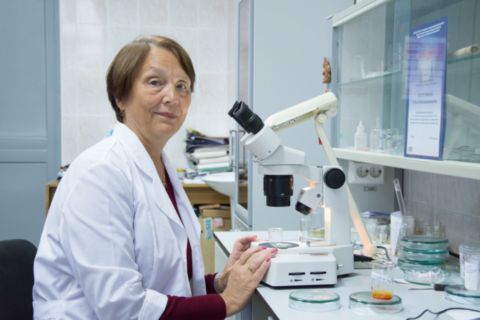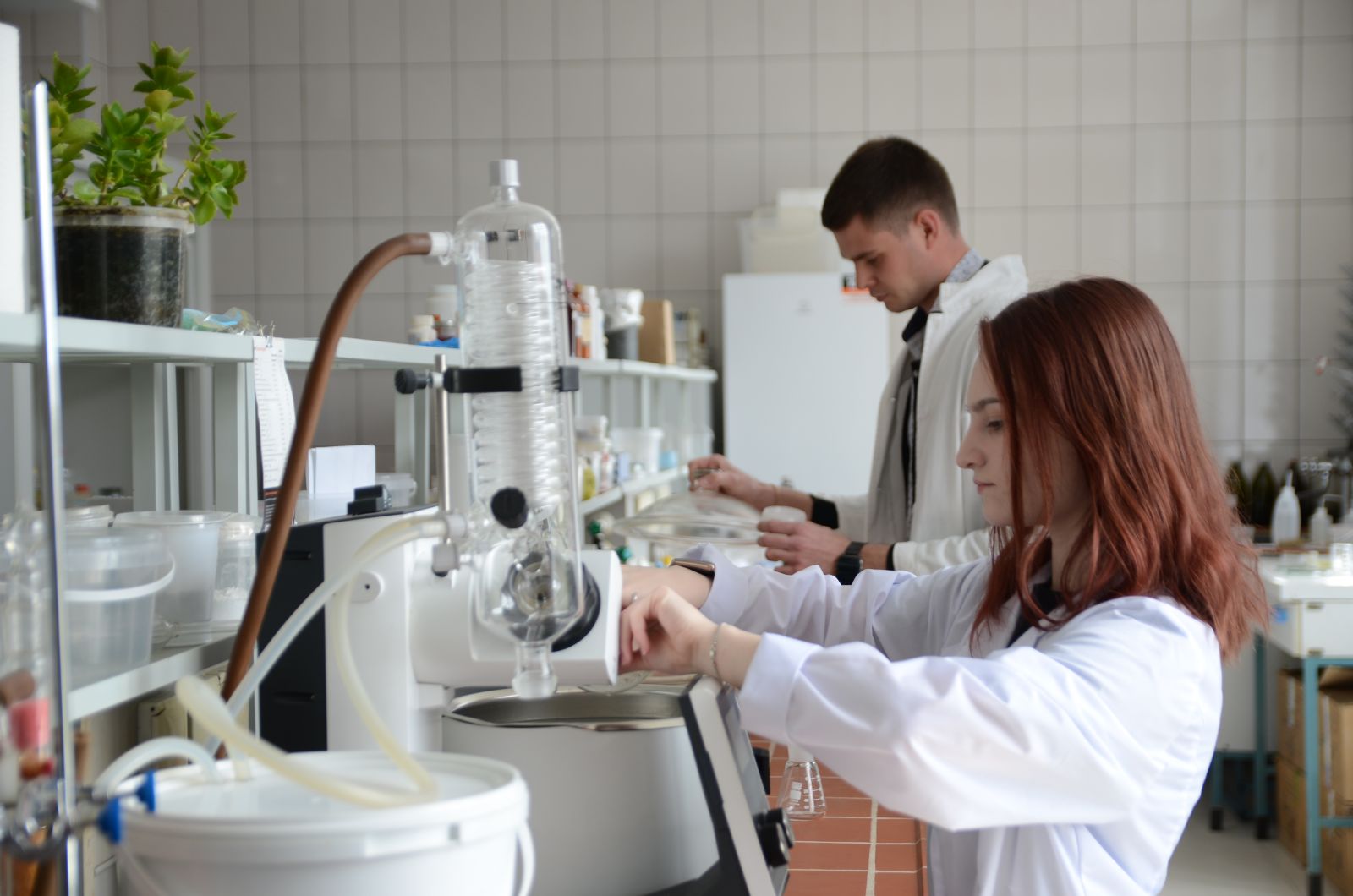Traditionally, last Sunday of May, the professional holiday of workers of chemical and petrochemical industry is celebrated. It was proclaimed by decree of the Presidium of the Supreme Soviet of the USSR in 1965 (and was set to be celebrated last Sunday of May in 1980). Workers of chemical industry are exceptionally in-demand in science, industry and business. At SUSU, specialists in the field of chemistry are trained at the Institute of Natural Sciences and Mathematics.
Doctor of Sciences (Chemistry), Professor and Head of the SUSU Department of Theoretical and Applied Chemistry Olga Sharutina spoke on the specifics of work of specialists in the field of chemical technology, and on the current research conducted at the university.
– Why is this programme so in demand? Why should applicants choose programmes in chemistry?
Chemists have always been in demand. At any enterprise, not even connected to chemical production. There are laboratories that control the quality of raw materials or products, monitor pollution of the atmosphere, water, and soil. Metallurgical and pharmaceutical plants, food industry enterprises, enterprises of microelectronics, cosmetics manufacturers, forensic laboratories – the list is long – all need chemistry specialists. Right now, chemical production in Russia is undergoing a new round of development. The need to expand the range of products of chemical industry has increased many times, which means that the demand for chemists will also increase. Besides, in the field of chemistry as a science, there are many problems, both theoretical and practical, that need to be solved. Upon obtaining basic knowledge, graduates can choose any kind of activity for implementation of their ideas.
– What topical problem in the field of chemistry are your colleagues currently working on?
At the Department of Theoretical and Applied Chemistry, the areas of our research are quite diverse. One of the groups of academic staff members is studying organic heterocyclic compounds, most of which are highly biologically-active and are part of medication of various effects. Another team of fellow-thinkers is engaged in studying the chemistry of organoelement compounds. These compounds do not exist in nature, they are created artificially. That is why, it is necessary to develop approaches to the synthesis of such compounds, and then synthesize compounds with specified parameters. This area of study is a part of fundamental research. And then the properties of the obtained substances are examined and the area of their practical application is determined. One of the urgent problems of modern chemistry is the development of calculation methods that can be used to create digital models and predict the properties of future materials. Jointly with staff members of other departments, applied research is conducted, for example, optimization of the processes of electrolytic chromium plating of titanium and alloys based on it.
– What interesting projects and developments are students of the department engaged in?
Traditionally, at the department, students are involved in research work on topics developed by academics. They become full co-authors of articles and participate in scientific conferences with their reports. The young academic staff members, who work at the department now, began their careers as freshmen, then they completed their Bachelor’s, Master’s, postgraduate programmes and defended their dissertations.
Next year, we are planning to involve students in solving production problems at the request of Chelyabinsk Zinc Plant. I think that this will be an interesting form of collaboration, which will help future specialists, while still at the university, learn about problems that occur at production and possible ways of solving them.
– Why and how did you connect your life with such science as chemistry?
I happened to finish school in a small village beyond the Arctic Circle. There were not enough teachers, so I had to educate myself. But I was lucky with chemistry. I still do not understand what brought a graduate of a chemical university with extensive knowledge and love for the subject from the capital to our village. She taught me using university textbooks, and I participated in Olympiads. There was no doubt about where I wanted to enrol in after school. I chose Gorkovskiy State University, its Faculty of Chemistry celebrated its almost-100-year anniversary back then. Studying there was incredibly exciting! I remember professors and academicians with gratitude. They did not allow to me to get disappointed in chemistry, and also instilled even greater confidence that this is the most interesting science.
– What would you wish students and future workers of chemical industry?
I would like to wish students to be patient, diligent and determined. These qualities are necessary in the difficult process of learning and in constant comprehension of the new. Success, including in education, is achieved through hard work. I would like to wish future specialists of chemical industry to understand the importance of the chosen profession since modern society cannot exist without chemists!
South Ural State University is a university of digital transformations, where innovative research is conducted in most of the priority fields of science and technology development. In accordance with the strategy of scientific and technological development of the Russian Federation, the university is focused on the development of big scientific interdisciplinary projects in the field of digital industry, materials science, and ecology. In 2021 SUSU became the winner in the competition under the Priority 2030 program. The university acts as a regional project office of the World-class Ural Interregional Research and Education Centre (UIREC), which is aimed at solving the tasks of the Science and Universities National Project.





